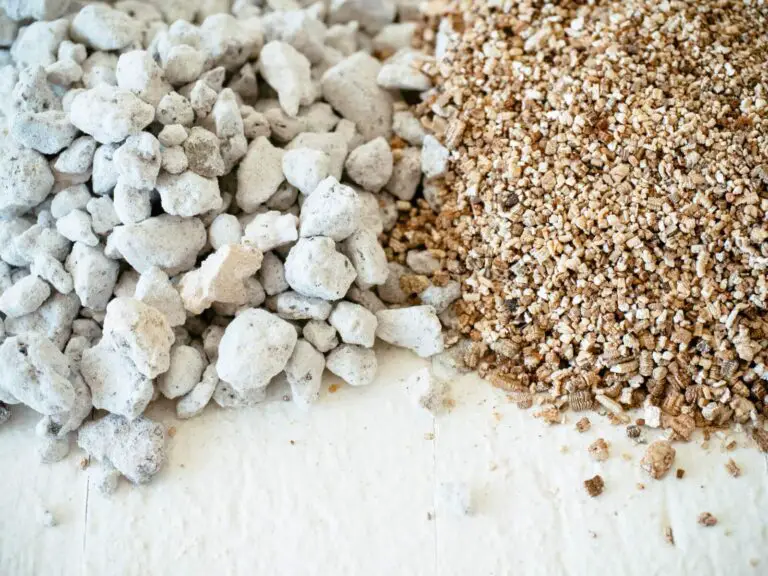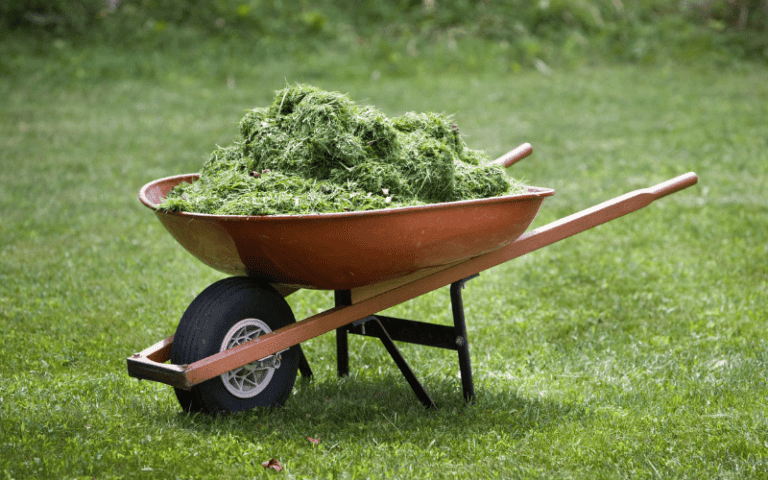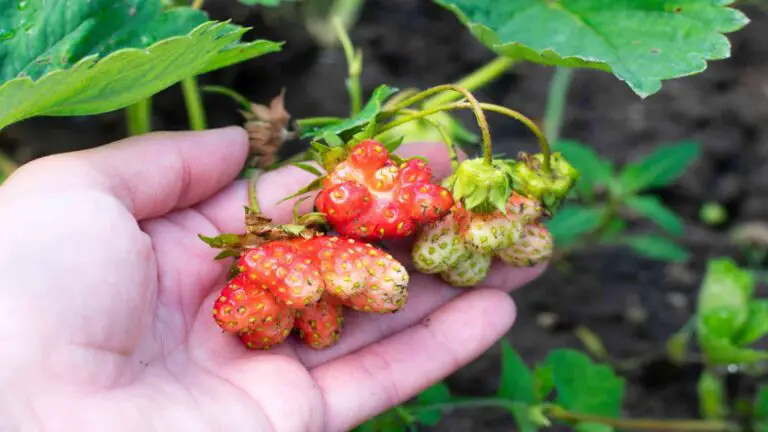Milky Spore Powder: Super Effectiveness in Pest Control
Table of Contents
Understanding the Milky Spore Powder and Its Purpose
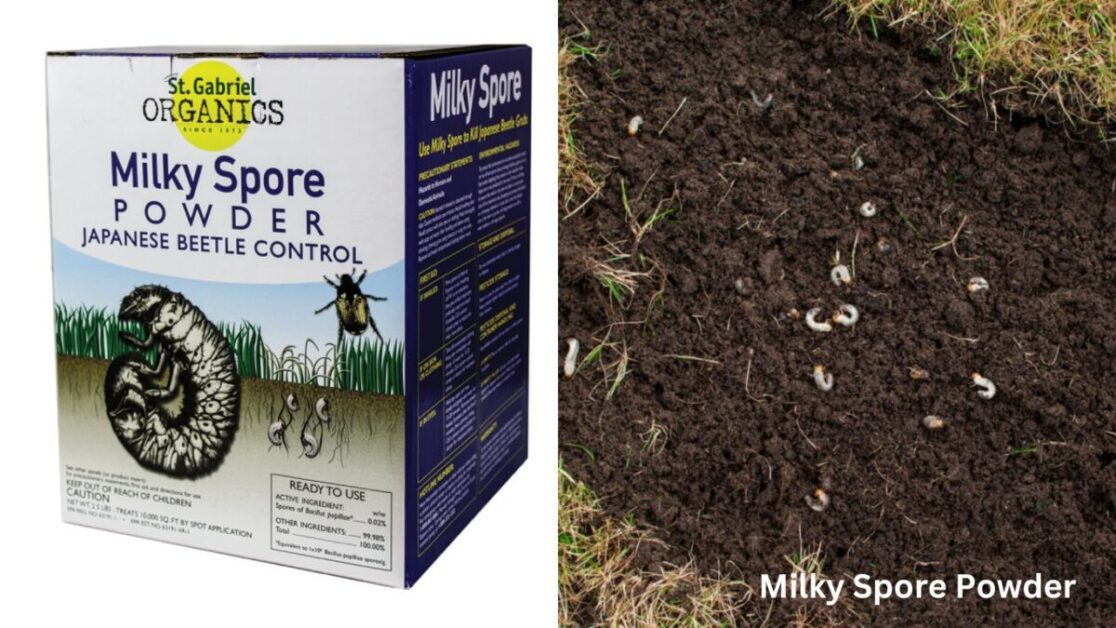
Milky Spore Powder is a natural, organic solution used for controlling and eradicating harmful garden pests. It is specially designed to combat the larvae of the Japanese beetle, a common pest known to wreak havoc on lawns and gardens. This environmentally friendly powder contains a bacteria strain called Bacillus popilliae, which is lethal to the larvae of Japanese beetles and other similar pests.
The primary purpose of Milky Spore is to establish long-term control over these destructive insects. By targeting the larvae stage of the Japanese beetle’s life cycle, Milky Spore disrupts their development and prevents them from maturing into adult beetles. This natural control method offers a sustainable approach to pest management, ensuring that the population of Japanese beetles is reduced over time.
The effectiveness of Milky Spore lies in its ability to persist in the soil for years, providing lasting protection against Japanese beetles and other pests. Once applied, the bacteria in the powder multiply and spread, creating a barrier within the soil that infects the larvae as they feed on the organic matter. As a result, the population of Japanese beetles gradually declines, leading to a healthier garden environment without the need for toxic chemicals or constant intervention.
The Life Cycle of Common Garden Pests
Garden pests can wreak havoc on our carefully cultivated plants, but by understanding their life cycles, we can better combat their presence. The life cycle of common garden pests consists of four stages: egg, larva, pupa, and adult. Each stage plays a crucial role in the pest’s development and survival, thus providing opportunities for targeted control measures.
The first stage is the egg, where the pest lays its eggs on leaves, stems, or other plant parts. These eggs are often tiny and inconspicuous, making them difficult to spot. Once hatched, the pest enters the larval stage, during which it actively feeds on the plant’s tissues, causing damage to stems, leaves, and fruits. This is the most destructive phase, as larvae can quickly multiply and spread throughout the garden.
After a period of feeding and growth, the larva enters the pupal stage. In this transformative phase, the pest undergoes metamorphosis, developing into its adult form. Depending on the species, the pupal stage can last anywhere from a few days to several weeks. Finally, the pest emerges as an adult, ready to mate, reproduce, and continue the cycle. Understanding these stages is crucial for effective pest management, as interventions can target vulnerable stages to reduce pest populations and minimize damage to plants.
Identifying the Pests Milky Spore Can Control
Milky spore powder is a highly effective natural control method for certain garden pests, specifically targeting Japanese beetle larvae. Japanese beetles are notorious for wreaking havoc on plants, feeding on their foliage and roots, which can result in significant damage and even death of the affected plants. Milky spore powder, however, has been found to control these pests by specifically infecting and killing the larvae.
One of the key advantages of using Milky spore is its specificity in targeting Japanese beetle larvae. This means that it poses minimal risk to beneficial insects, such as bees and butterflies, and other garden organisms. Additionally, Milky spore is environmentally friendly and does not harm humans or pets. Its natural mode of action makes it an attractive option for those seeking an alternative to chemical pesticides. By selectively targeting the pests responsible for the damage, Milky spore offers an effective and eco-friendly solution for controlling Japanese beetle larvae and protecting your garden plants.
Exploring the Mechanism of Action for Milky Spore
Milky Spore Powder is a widely used and effective method for controlling certain pests in your garden. But how does this powder actually work to combat these unwanted invaders? Exploring the mechanism of action for Milky Spore can shed light on the fascinating process behind its pest control effects.
At the core of Milky Spore Powder’s effectiveness lies its interaction with a specific type of pest, the Japanese beetle (Popillia japonica). After application, the powder is ingested by the beetle larvae as they feed on your lawn and garden. Once consumed, the spores within the powder begin to germinate and multiply within the beetle’s gut.
As the spores multiply, they release a toxic protein known as “milky spore” or “milky disease.” This protein breaks down the beetle larvae’s intestinal lining, leading to their eventual demise. Within the decomposing larvae, the milky spore is released back into the soil, where it remains viable for many years, replenishing the natural defense against Japanese beetles.
The mechanism of action for Milky Spore can be seen as a kind of biological warfare against these garden pests. By infecting the beetles’ digestive tract and disrupting their ability to feed and survive, the powder effectively reduces their population over time. This natural and targeted approach avoids the use of harmful chemicals, minimizing any potential risks to other organisms in your garden ecosystem.
So, by understanding how Milky Spore works to control pests, gardeners can make informed decisions about whether this method aligns with their pest management goals. Its ability to specifically target Japanese beetle larvae and its environmentally friendly nature make it a popular choice among garden enthusiasts. In the next section, we will explore the benefits of using Milky Spore in greater detail, providing you with even more reasons to consider integrating this pest control method into your gardening routine.
The Benefits of Using Milky Spore in Pest Control
Milky Spore Powder has been hailed as an effective tool in controlling garden pests, particularly those pesky grubs that cause damage to lawns and gardens. One of the key benefits of using Milky Spore is its long-lasting effects. Once applied to the soil, the spores of the Bacillus popilliae bacteria remain dormant until they come into contact with the grubs, triggering an infection that can last for years. This means that Milky Spore provides a continuous line of defense against these unwanted pests, reducing the need for frequent reapplication of chemical pesticides.
In addition to its long-lasting effects, another advantage of using Milky Spore is its environmentally friendly nature. Unlike some chemical pesticides which can have detrimental effects on beneficial insects, birds, and other wildlife, Milky Spore specifically targets the grubs of Japanese beetles while leaving other organisms unharmed. This makes it a safe and sustainable choice for gardeners who are mindful of the impact their pest control methods may have on the ecosystem.
As an added benefit, Milky Spore Powder is easy to apply, making it an accessible option for both beginner and experienced gardeners. With its concentrated formulation, the powder can be spread evenly across the soil using a broadcast spreader or by hand. Once applied, the powder works its way into the soil, establishing a reservoir of spores that will continue to infect grubs year after year. This simplicity of application not only saves time and effort, but also ensures that the powder is evenly distributed, maximizing its effectiveness in controlling pests.
Overall, the benefits of using Milky Spore in pest control cannot be overlooked. Its long-lasting effects, environmentally friendly nature, and ease of application make it an attractive choice for those looking to maintain a healthy and thriving garden while minimizing the use of harsh chemicals. By incorporating Milky Spore into their pest control regimen, gardeners can take a proactive approach to preventing grub damage and ensure the longevity and vitality of their plants.
How to Apply Milky Spore for Maximum Effectiveness
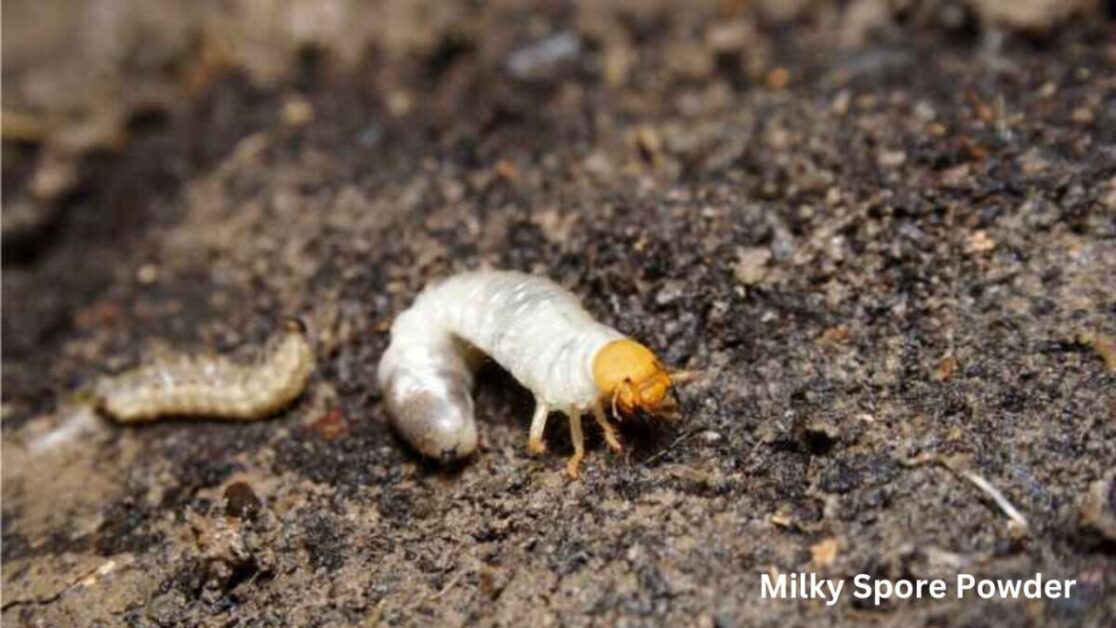
To maximize the effectiveness of Milky Spore in pest control, proper application is essential. Follow these steps to ensure optimal results:
1. Prepare the area: Before applying Milky Spore, it is crucial to prepare the area properly. Start by removing any debris, dead plants, or excessive thatch from the lawn. This will help ensure that the powder can reach the soil where the target pests reside. Additionally, aeration of the soil can improve the absorption of the powder, so consider aerating the lawn if necessary.
2. Apply at the right time: Milky Spore is most effective when applied during the grub larvae’s active feeding period. This typically occurs in late spring or early fall when the soil temperature is around 60°F (15°C) or higher. Check the recommended application timing for your region to ensure proper timing.
3. Apply evenly and at the recommended rate: Milky Spore should be applied evenly across the target area. You can use a spreader or a shaker to distribute the powder uniformly. Follow the product’s instructions for the recommended application rate, as applying too little or too much can affect the powder’s effectiveness.
4. Water the area: After applying Milky Spore, it is vital to water the treated area thoroughly. This helps the spores penetrate the soil, where they can establish and multiply. Irrigate the lawn with at least 1/4 inch of water immediately after application. Subsequent watering will also be necessary to promote the spores’ multiplication and spread.
Remember, the efficacy of Milky Spore can take some time to be fully realized. It may take several months or even years for the spores to multiply and build up in the soil to provide long-lasting control. Regular reapplication may be necessary to maintain optimal pest control. By following these application guidelines, you can enhance the effectiveness of Milky Spore Powder in controlling common garden pests and enjoy a healthier, pest-free lawn.
Factors Affecting the Success of Milky Spore Treatment
Milky Spore Powder is a biological pest control method that specifically targets the larvae of Japanese beetles. While it is considered an effective solution for controlling these pests, its success can be influenced by a variety of factors. Understanding these factors is crucial to maximizing the effectiveness of Milky Spore Powder treatment.
One significant factor is the timing of application. Milky Spore should be applied when the larvae of Japanese beetles are actively feeding in the soil, typically during the late summer or early fall. Applying the powder at this specific time allows it to come into contact with the grubs and establish a presence in the soil, leading to long-term control. Applying the powder too early or too late may not yield the desired results.
Another important factor is the presence of other control methods and the overall pest management strategy. While Milky Spore can be an effective standalone treatment, incorporating it into an integrated pest management (IPM) plan can yield better results. This may involve combining Milky Spore Powder with other control methods, such as beneficial nematodes or insecticidal soap, to target different stages of the Japanese beetle’s life cycle and create a more comprehensive approach to control. Additionally, addressing other pest-related factors, such as maintaining healthy soil, reducing attractants, and practicing good garden hygiene, can enhance the success of Milky Spore treatment.
Factors such as soil conditions, temperature, and moisture levels can also impact the efficiency of Milky Spore Powder. The powder needs to be applied to moist soil to ensure proper activation and distribution. If the soil is excessively dry, it may be necessary to water the area before and after application. Similarly, if the soil is too compacted or contains a high concentration of rocks or debris, the powder may not be able to penetrate effectively and establish the required bacterial activity.
Additionally, understanding the life cycle and behavior of Japanese beetles can help optimize Milky Spore treatment. Knowing when adult beetles emerge and lay eggs, as well as the duration of the larvae stage, can inform the timing and frequency of application. Regular monitoring of beetle activity, such as observing feeding patterns or using traps, can provide valuable insights and guide effective treatment strategies.
By considering these factors and implementing best practices, gardeners can enhance the success rate of Milky Spore treatment for controlling Japanese beetle populations.
The Duration of Milky Spore Powder’s Pest Control Effects
Milky Spore Powder is renowned for its long-lasting pest control effects, making it a valuable tool in the battle against common garden pests. After application, Milky Spore Powder remains active in the soil for an extended period, providing continuous protection against targeted pests.
The duration of Milky Spore Powder’s pest control effects can vary depending on several factors. Soil temperature plays a significant role in the activation and multiplication of the spores. Warmer temperatures between 70-100°F (21-38°C) are ideal for the multiplication of the spores, ensuring a more extended period of protection. On the other hand, colder temperatures may delay the activation and replication of the spores, potentially affecting the duration of efficacy.
Additionally, the frequency and intensity of pest activity also influence the longevity of Milky Spore Powder’s effects. If the targeted pests are present in high numbers or are actively feeding on the treated area, the duration of control may be shortened. In contrast, lower pest populations or limited feeding activity may result in a prolonged period of effectiveness.
By considering these factors, gardeners can optimize the duration of Milky Spore Powder’s pest control effects and ensure sustainable and reliable protection against common garden pests. However, it is important to note that individual results may vary, and regular monitoring and maintenance may be necessary to address changing pest dynamics. In the following sections, we will explore other aspects of Milky Spore, including its mechanism of action and its benefits in pest control.
Comparing Milky Spore with Other Pest Control Methods
Milky Spore Powder is an effective and natural pest control method that stands out among other pest control options. Compared to chemical pesticides, Milky Spore Powder offers a safe and environmentally friendly solution for managing garden pests. Chemical pesticides may provide quick results, but they often come with risks to human health, beneficial insects, and the ecosystem as a whole. In contrast, Milky Spore is non-toxic to humans, pets, and most beneficial insects, making it a preferred choice for those seeking a sustainable approach to pest management.
Another advantage that sets Milky Spore apart from other pest control methods is its long-lasting efficacy. While chemical pesticides may require frequent applications, Milky Spore Powder can remain active in the soil for up to 15 years, providing continuous control of pests. This longevity not only reduces the need for repeated treatments but also ensures long-term protection against invasive pests.
In addition to its safety and long-lasting effects, Milky Spore is specifically targeted against the larvae of Japanese beetles. Unlike broad-spectrum pesticides that harm both beneficial insects and pests, Milky Spore selectively targets the larvae of beetles while leaving other insect populations undisturbed. This targeted approach helps maintain the balance of beneficial insects in the ecosystem and reduces the risk of secondary pest outbreaks.
In conclusion, when comparing Milky Spore with other pest control methods, its safety, long-lasting effects, and targeted approach make it a standout choice for managing pests in gardens. By using Milky Spore Powder, gardeners can effectively control Japanese beetle larvae without compromising the health of other beneficial insect populations or the environment.
Addressing Concerns about the Safety of Milky Spore
The safety of Milky Spore has been a topic of concern among gardeners, and it is important to address these worries. However, studies and expert opinions suggest that Milky Spore is generally safe when used according to the instructions provided.
One of the main concerns surrounding Milky Spore is its impact on non-target organisms. While Milky Spore does target specific pests, such as Japanese beetles, it is not known to harm beneficial insects or other animals. In fact, Milky Spore is considered environmentally friendly and safe for use around humans and pets. It is a natural bacterium that specifically targets the larvae of Japanese beetles, with no known negative effects on other organisms.
Additionally, Milky Spore Powder is safe to use on edible plants. It does not leave any harmful residues on the plant surface or in the soil, making it a suitable choice for organic gardening. Furthermore, Milky Spore Powder does not pose any significant risks to human health when used correctly. It is not toxic if ingested, although it is still advisable to keep it out of reach of children and follow the safety precautions outlined in the product’s labeling.
In conclusion, concerns about the safety of Milky Spore Powder can be put to rest as scientific research suggests that it is a safe and effective pest control option. However, it is always recommended to follow the instructions provided by the manufacturer and take necessary precautions to ensure proper usage.
Tips for Integrating Milky Spore Powder into an Integrated Pest Management Plan
When integrating Milky Spore Powder into an Integrated Pest Management (IPM) plan, there are a few key tips to keep in mind. Firstly, it is important to understand the life cycle of the target pest and identify the optimal timing for application. Milky Spore Powder is most effective when applied during the grub stage of the pest, so monitoring and identifying the presence of grubs in the soil is crucial.
Secondly, proper application techniques are essential for maximizing the effectiveness of Milky Spore Powder. It is recommended to apply the powder evenly over the affected area, following the recommended dosage instructions. This can be done using a spreader or by hand, but it’s important to ensure thorough coverage. Additionally, it is advised to water the area immediately after application to help activate the spores and facilitate their penetration into the soil.
By following these tips, gardeners can integrate Milky Spore Powder into their IPM plans effectively, targeting specific pests while minimizing the impact on beneficial insects and the environment. With the proper understanding and application techniques, Milky Spore Powder can be a valuable tool in controlling the population of harmful garden pests.
Understanding the Environmental Impact of Milky Spore Powder Use
Milky Spore Powder is widely used in pest control due to its effectiveness against certain garden pests such as Japanese beetles. However, as with any pest control method, it is crucial to understand the potential environmental impact of using Milky Spore Powder.
The primary active ingredient in Milky Spore Powder is a naturally occurring bacterium called Bacillus popilliae. This bacterium specifically targets the larvae of Japanese beetles and other beetle species. When applied to the soil, the spores of Bacillus popilliae are ingested by the beetle larvae, infecting and eventually killing them.
One positive aspect of using Milky Spore Powder is its environmental friendliness. Bacillus popilliae is not harmful to humans, pets, birds, or beneficial insects such as bees and butterflies. Furthermore, the bacterium does not contaminate the soil or water sources, making it an excellent choice for organic and environmentally conscious gardeners. However, it is crucial to follow the application instructions carefully to prevent the excessive use of Milky Spore Powder, as it may disrupt the natural balance of microbial life in the soil.
Potential Limitations and Drawbacks of Milky Spore Powder
Milky Spore Powder is widely regarded as an effective and natural solution for controlling certain pests in the garden. However, it is essential to acknowledge that there are some potential limitations and drawbacks to consider when using this product.
One of the main limitations of Milky Spore Powder is its narrow spectrum of control. This biological control method specifically targets Japanese beetle larvae, which can cause significant damage to lawns and gardens. While this is beneficial for those who struggle with Japanese beetle infestations, it does not provide a solution for other common garden pests such as aphids, caterpillars, or slugs. As a result, it is important to assess whether Japanese beetles are the predominant pest issue before investing in Milky Spore Powder.
Another drawback to consider is the time it takes for the Milky Spore Powder to be effective. This natural pest control method relies on the multiplication and persistence of the bacteria in the soil to gradually reduce Japanese beetle populations over time. It can take one to three years for the treatment to reach its full effectiveness, which may not be ideal for gardeners seeking immediate pest control solutions. Additionally, Milky Spore Powder requires consistent moisture in the soil to thrive, so areas with dry or sandy soil may not be as conducive to the bacteria’s growth.
Supporting Scientific Research on Milky Spore Powder’s Effectiveness
Milky Spore Powder has been widely used as an effective pest control method in gardens and lawns. Numerous scientific studies have been conducted to understand its effectiveness in managing common garden pests. One such study conducted by researchers at the University of Wisconsin-Madison analyzed the impact of Milky Spore Powder on the population of Japanese beetles, a common garden pest.
The study involved treating different areas of a garden with Milky Spore Powder and monitoring the Japanese beetle population over several months. The results were promising, showing a significant decrease in the beetle population in treated areas compared to untreated ones. This research provides scientific evidence supporting the effectiveness of Milky Spore Powder in controlling Japanese beetles.
Another study, published in the Journal of Applied Entomology, evaluated the efficacy of Milky Spore Powder against the larvae of the European chafer, another notorious garden pest. The researchers conducted a field trial where Milky Spore Powder was applied to the soil, and the larval population was monitored. The results demonstrated a significant reduction in the number of European chafer larvae in the areas treated with Milky Spore Powder, further validating its efficacy as a pest control measure. These studies, along with others, highlight the potential of Milky Spore Powder in managing common garden pests through scientific research and field trials.
Success Stories: Real-world Experiences with Milky Spore Powder
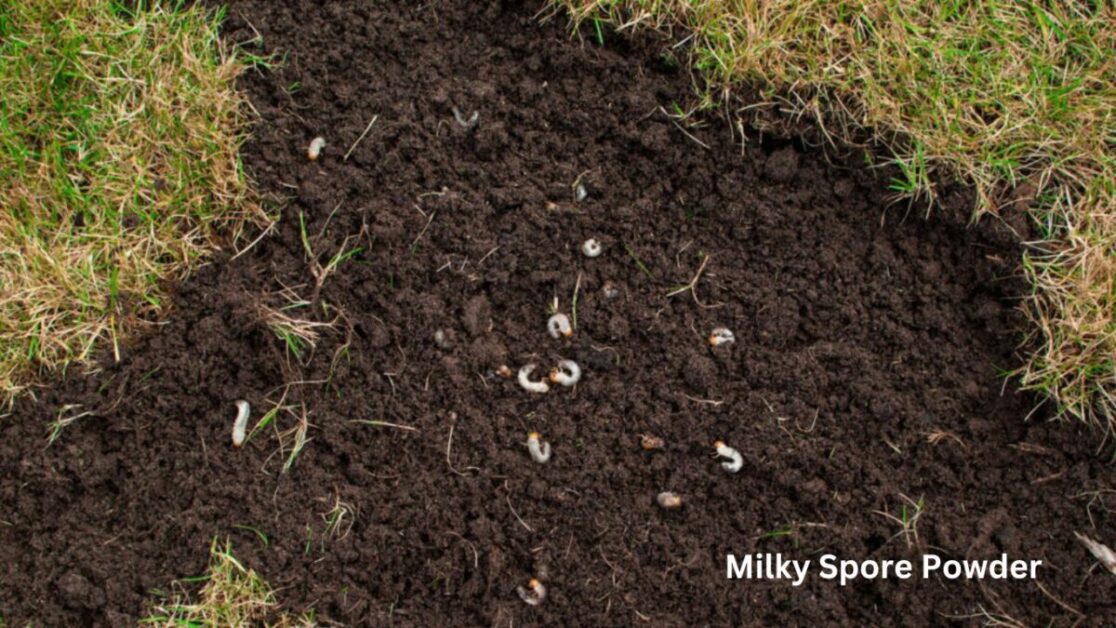
Milky Spore Powder has been praised by many gardeners for its effectiveness in controlling certain garden pests. Here are two success stories from real-world experiences with Milky Spore Powder:
1. “I had struggled for years trying to rid my lawn of Japanese beetle grubs. These pests were destroying my grass and plants, and nothing seemed to work. Then, I discovered Milky Spore Powder. I followed the application instructions and patiently waited for the results. Within a few weeks, the number of grubs decreased significantly, and my lawn started to recover. Over time, I noticed a remarkable improvement in the overall health of my garden. Milky Spore Powder has become an essential component of my pest control strategy, and I highly recommend it to anyone dealing with Japanese beetles.”
2. As an avid organic gardener, finding effective pest control methods that align with my principles has always been a challenge. When I learned about Milky Spore Powder, I was intrigued by its natural approach to controlling Japanese beetle populations. After applying the powder to my lawn, I noticed a decline in the number of beetles feeding on my plants. What impressed me the most was that Milky Spore Powder continued to work year after year, as the spores multiplied in the soil. It’s truly amazing to witness the long-lasting effects of this product, providing a sustainable solution to pest management.”
These success stories highlight the positive experiences of gardeners who have used Milky Spore Powder to combat specific pests. Their testimonials reinforce the notion that Milky Spore Powder can be a valuable tool in the battle against pests, particularly Japanese beetles. However, it’s important to remember that individual results may vary, and factors such as environment and application technique can influence the outcomes. As we delve deeper into the efficacy and benefits of using Milky Spore Powder, it becomes evident why it has gained popularity among gardening enthusiasts.
Here’s a table outlining key information about Milky Spore Powder:
| Aspect | Details |
|---|---|
| Name | Milky Spore Powder |
| Type | Biological insecticide |
| Active Ingredient(s) | Bacillus popilliae (formerly Bacillus popilliae) |
| Target Pest(s) | Japanese beetle larvae (grubs) |
| Mode of Action | Ingested by grubs, causing infection and death |
| Application Method | Typically applied to lawns and turf areas |
| Effectiveness | Long-lasting control, as spores persist in the soil for several years |
| Safety | Generally considered safe for humans, pets, and beneficial insects |
| Environmental Impact | Target-specific, does not harm non-target organisms or the environment |
| Application Frequency | Generally applied every 2 to 4 years for long-term control |
| Availability | Available for purchase at garden centers, nurseries, and online |
| Usage Instructions | Follow label instructions carefully for proper application and dosage |
| Benefits | Provides effective, natural control of Japanese beetle grubs without harming beneficial insects or the environment |
| Limitations | Slow-acting, may take time to establish in the soil and provide full control |
| Cost | Cost-effective compared to chemical insecticides over the long term |
Milky Spore Powder is a popular choice for organic and environmentally conscious gardeners seeking effective control of Japanese beetle larvae in lawns and turf areas.
Expert Advice on Using Milky Spore Powder for Pest Control.
Milky Spore Powder, a natural and environmentally friendly method of pest control, has gained popularity among gardeners for its effectiveness in combating certain types of pests. However, to ensure maximum effectiveness, it is important to understand the correct application and timing for using this product.
Firstly, it is crucial to identify the target pests that can be controlled by Milky Spore Powder. This product primarily targets the larvae of Japanese beetles (Popillia japonica), which are notorious for causing extensive damage to a wide range of plants. By infecting the larvae with the milky spore bacterium (Bacillus popilliae), Milky Spore Powder significantly reduces the population of these destructive pests. It is important to note that this product is not effective against the adult beetles or other types of garden pests.
When it comes to applying Milky Spore Powder, timing is key. The bacterial spores need to be applied when the grubs are actively feeding in the soil, which usually occurs during mid to late summer. Applying the powder during this period enhances the chances of success, as the grubs are more likely to ingest the spores while feeding. However, it is essential to follow the specific instructions provided by the manufacturer to ensure proper dosage and application.
In the next sections, we will delve deeper into the factors affecting the success of Milky Spore Powder treatment, its duration of effectiveness, and how it compares to other pest control methods. By understanding these aspects, gardeners can make informed decisions about integrating Milky Spore Powder into their pest management plans and effectively protect their plants from Japanese beetles.
How long does it take for Milky Spore Powder to start working?
Milky Spore Powder typically takes 1 to 3 years to establish itself in the soil and build up enough spores to effectively control pests. However, some initial control may be seen within the first year.
Can Milky Spore Powder harm beneficial insects?
No, Milky Spore Powder specifically targets the larvae of Japanese beetles and does not harm beneficial insects like bees, butterflies, or ladybugs.
Is Milky Spore Powder safe for pets and children?
Milky Spore Powder is considered safe for pets and children when applied according to the instructions. However, it is recommended to keep them away from treated areas until the powder has been watered in and allowed to settle.
Can I use Milky Spore Powder in vegetable gardens?
Yes, Milky Spore Powder is safe to use in vegetable gardens as it does not contaminate crops. However, it is important to avoid direct application on edible plants.
Will Milky Spore Powder wash away with rainfall?
Milky Spore Powder is rainproof once watered in properly. It binds with the soil particles and remains effective even after heavy rainfall.
Can I apply Milky Spore Powder in the winter?
Milky Spore Powder is most effective when applied during the grubs’ active feeding season, which is typically in late summer or early fall. It is not recommended to apply the powder during winter.
Is it necessary to reapply Milky Spore Powder every year?
No, Milky Spore Powder remains active in the soil for up to 10 years or more, providing long-term control. Reapplication is generally not required unless there is a severe infestation.
Can I use Milky Spore Powder in conjunction with other pest control methods?
Yes, Milky Spore Powder can be used alongside other pest control methods. It is often recommended to integrate it into an integrated pest management plan for a comprehensive approach to pest control.
Does Milky Spore Powder have any impact on the environment?
Milky Spore Powder is considered environmentally friendly as it specifically targets the Japanese beetle larvae and does not harm other organisms or pollute the soil or water.
Can Milky Spore Powder be used for pest control in potted plants or indoor gardens?
No, Milky Spore Powder is designed for outdoor use in soil. It is not suitable for potted plants or indoor gardens.



